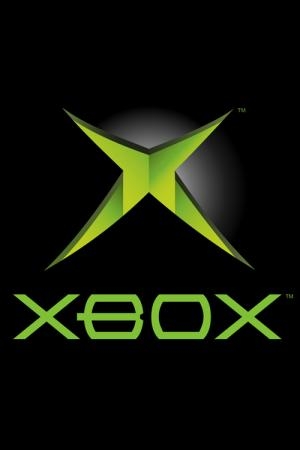
Microsoft Xbox
Microsoft Xbox Specifications
| Manufacturer: | Microsoft |
| Developer: | Microsoft |
| CPU: | Custom 733 MHz Intel Pentium III "Coppermine-based" processor |
| Memory: | 64 MB of DDR SDRAM @ 200 MHz |
| Graphics: | 233 MHz nVidia NV2A |
| Sound: | NVIDIA "MCPX" (a.k.a. SoundStorm "NVAPU") |
| Medium: | Disc |
| Display: | 480i, 480p, 576i, 576p, 720p, 1080i |
| Controllers: | 4 |
The Microsoft Xbox is a sixth-generation video game console manufactured by Microsoft. It was released on November 15, 2001 in North America, February 22, 2002 in Japan, and March 14, 2002 in Australia and Europe and is the predecessor to the Xbox 360. It was Microsoft's first foray into the gaming console market, and competed with Sony's PlayStation 2, Sega's Dreamcast, and Nintendo's GameCube. The integrated Xbox Live service allowed players to play games online.
Xbox is a video gaming brand that consists of five home video game consoles, as well as applications (games), streaming service Xbox Cloud Gaming, and online services such as the Xbox network and Xbox Game Pass. The brand is produced by Microsoft Gaming, a division of Microsoft.
The brand was first introduced in the United States in November 2001, with the launch of the original Xbox console. The Xbox branding was formerly, from 2012 to 2015, used as Microsoft's digital media entertainment brand replacing Zune. In 2022, Microsoft expanded its gaming business and reorganized Xbox to become part of its newly formed Microsoft Gaming division. Under Microsoft Gaming, Xbox's first-party publishers are Xbox Game Studios, ZeniMax Media (Bethesda Softworks), and Activision Blizzard (Activision, Blizzard Entertainment, and King), who own numerous studios and successful franchises.
The original device was the first video game console offered by an American company after the Atari Jaguar stopped sales in 1996. It reached over 24 million units sold by May 2006. Microsoft's second console, the Xbox 360, was released in 2005 and has sold 86 million units as of October 2021. The third console, the Xbox One, was released in November 2013 and has sold 58 million units. The fourth line of Xbox consoles, the Xbox Series X and Series S, were released in November 2020. The head of Xbox is Phil Spencer, who succeeded former head Marc Whitten in late March 2014.
When Sony Computer Entertainment first announced the PlayStation 2 in 1999, the company had positioned the console as a centerpiece for home entertainment, as it not only would play video games, but also could play audio CDs and video DVDs. Microsoft, whose business had been primarily in supporting the personal computer (PC) business with its Windows operating system, software, and games, saw the PlayStation 2 as a threat to the personal computer.
Four engineers from Microsoft's DirectX team—Kevin Bachus, Seamus Blackley, Ted Hase and DirectX team leader Otto Berkes, began to envision what a Microsoft console to compete against the PlayStation 2 would be like. They designed a system that would use many hardware components in common with PCs, effectively running a version of Windows and DirectX to power the games on the console. This approach would make it easy for developers on Windows to build games for their new system, differentiating itself from the custom hardware solutions of most consoles. Numerous names were suggested for this console, including "Direct X Box", and the "Windows Entertainment Project". Microsoft's marketing team conducted consumer surveys of the name, using the name "Xbox" as a control believing this would be least desirable, but found that this had the highest preference from their tests, and was selected as the name of the console.
While the original Xbox had modest sales, Microsoft took a large financial loss to support it. However, its performance was sufficient to convince the company to continue to produce the line. Since its release, there have been four generations of Xbox, with the most recent being the Xbox Series X and Series S units. The Xbox has become a direct competitor to Sony's PlayStation brand, both offering high performance gaming systems at roughly similar specifications.
Microsoft has been recently working to leverage the branding of "Xbox" beyond the console hardware but as a general video game brand, reflected in the renaming of Microsoft Studios to Xbox Game Studios in 2019. Phil Spencer stated in June 2019 that for Microsoft, "The business isn't how many consoles you sell. The business is how many players are playing the games that they buy, how they play." which journalists have taken as a route to de-emphasize console hardware and prioritize games, subscriptions and services for players. Later in February 2020, Spencer said that moving forward, the company does not see "traditional gaming companies" like Nintendo and Sony as their competitors but instead those that offer cloud computing services such as Amazon and Google. Spencer identified that Microsoft Azure is a major component of their plans going forward, which powers its xCloud game streaming service. Spencer also cited mobile gaming as a potential area, and where Microsoft was trying to position itself with its services should this become the more preferred form for gaming. Spencer said "I don't think it's "hardware agnostic" as much as it's 'where you want to play'", in describing how Microsoft was strategizing the Xbox branding for the future.
Latest on Microsoft Xbox
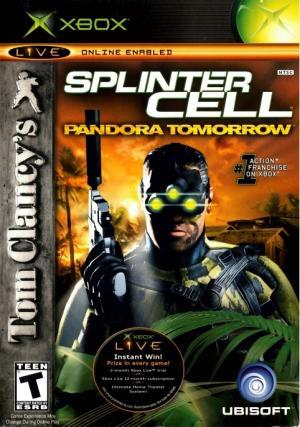
Tom Clancy's Splinter Cell: Pandora Tomorrow (Xbox Live Variant)
Pandora Tomorrow takes place in Indonesia during the spring of 2006, in which the United States has established a military presence in the newly indep...
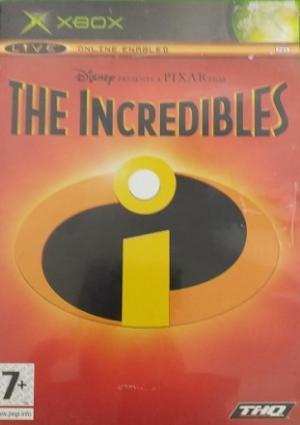
The Incredibles
The Incredibles is a 2004 video game based on the eponymous film The Incredibles . The game was released for the PlayStation 2 , Xbox , Nintendo GameC...
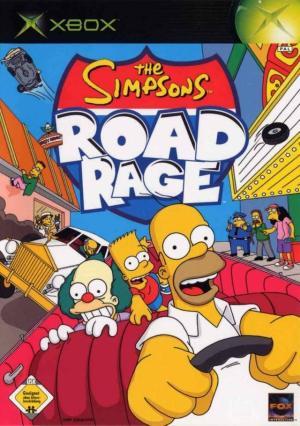
Simpsons: Road Rage
Mr Burns has taken over Springfield's transit company and replaced the buses with nuclear powered buses; not only that but they also cost a lot to rid...
![Shin Megami Tensei: NINE [Deluxe Pack]](https://m1.videogamemeta.com/shin-megami-tensei-nine-deluxe-pack-microsoft-xbox-fct.jpg)
Shin Megami Tensei: NINE [Deluxe Pack]
Shin Megami Tensei NINE is a game set in the world of the main Shin Megami Tensei series. The "NINE" in the title refers to the nine alignments in the...
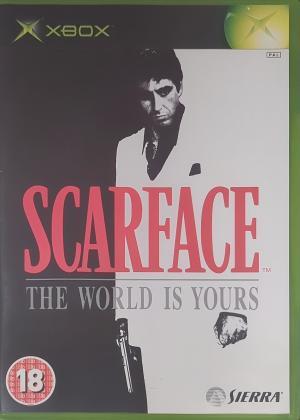
Scarface The World is Yours
Scarface: The World Is Yours is a 2006 action-adventure video game developed by Radical Entertainment for the PlayStation 2, Xbox and Microsoft Window...

SpyHunter 2
SpyHunter 2 is a video game published by Midway in 2003 for PlayStation 2 and Xbox. This game is the sequel to the 2001 remake of the 1983 game Spy Hu...
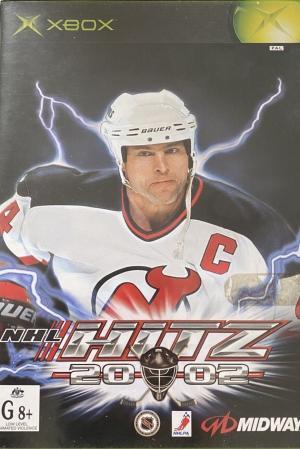
NHL Hitz 2002
NHL Hitz 2002 is an arcade-style ice hockey video game released by Midway. It is the first game of the NHL Hitz series. Midway launched this game alon...

MotoGP 2 Ultimate Racing Technology Videogame
MotoGP: Ultimate Racing Technology 2 is a Grand Prix motorcycle racing video game developed by Climax Brighton for the Xbox, Microsoft Windows, and mo...
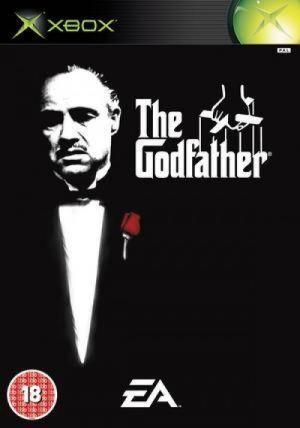
The Godfather: The Game
The Godfather: The Game is a2006 computer game based on the film The Godfather . However, it is not the first Godfather game that has been made. There...
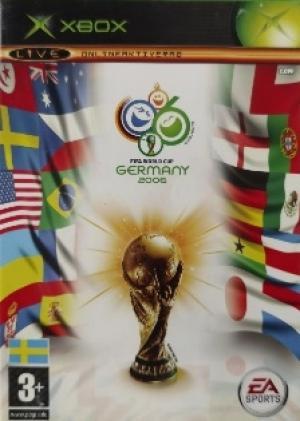
FIFA World Cup 2006
2006 FIFA World Cup is a computer game developed by EA Canada . It is dedicated to the 2006 Football World Cup , which was held in Germany . The game ...